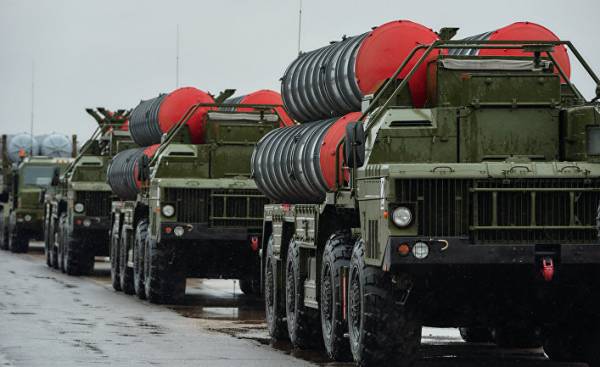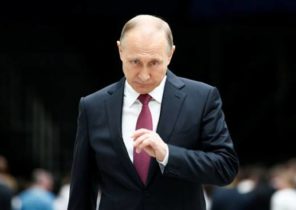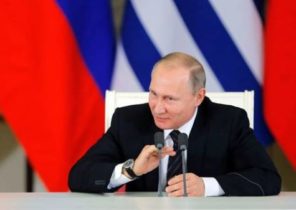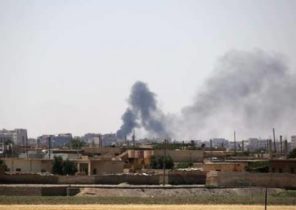
Now we are experiencing the days when Turkey’s relations with Europe every step of the way pass through new challenges.
It was at this time the 96th anniversary of the conclusion of the historic Treaty of Moscow signed on 16 March 1921, and it gives us the opportunity to pay attention to the conditions in which Turkey is today, and the future of Turkey by opening one of the pages of history.
The Moscow Treaty is an important document that was signed between the government of the Grand national Assembly of Turkey (TGNA) and the government of the Russian Soviet Federative Socialist Republic, and today forms the basis of modern relations between Turkey and Russia.
This Treaty is an international agreement after the government of the TGNA on 3 December 1920 Guminski signed an agreement with Armenia. If the two documents add to the Treaty of Kars of 13 October 1921, you get three treaties that define the current borders between Turkey and Caucasus in the East.
The result of the Moscow Treaty, the newly created government of the TGNA was first recognised in the international arena as a legal entity on the part of such an important country as Russia. The document was signed during a period when the two neighbouring countries, linked by centuries-old historical relations, entered into the process of building a new state.
On the one hand, Russia, having escaped from the First world war in the elections held in 1917, the revolution, on the other hand, Turkey, which after the war began the national liberation struggle, in this period of history by coming closer to each other, in a sense, outlined a common position against the Western imperialism.
96 years have passed since then, were a time of various kinds of trials that befell relations between Turkey and Russia. The most important of them lately — the famous “airplane crisis” of November 2015. Now this crisis is overcome and the relations between Turkey and Russia, though slowly, but are on the path of normalization.
Currently, Turkey and Russia a troubled relationship with Europe. Against Russia sanctions are applied by the EU. As Turkey in the relations with the EU is going through troubled times, like never before.
Therefore, what is between the two countries continue their close cooperation both in bilateral level and on important international issues, primarily Syria, attracts attention, just like 96 years ago.
The Moscow Treaty established equal relations between the two countries and aim to develop a balanced and mutual cooperation in many spheres. While it is difficult to say that in this relationship there is a balance.
Although the two sides adhere to one point of view on the question of the preservation of the territorial integrity of Syria, at different stages of the fight against ISIS (banned in Russia — approx. ed.) in relation to Manbij and raqqa differences remain.
A similar situation exists in bilateral relations. For example, in the export of Turkey to Russia is expected to cancel the ban imposed on some products, and achieving the same level of trade. Our exporters are paying attention to the goods on which the ban was lifted, feel inadequate that that these products are limited to cauliflower, broccoli, onions, carnations.
At the moment the greatest progress in Russian-Turkish relations is observed in the energy sector. On the one hand, rapid progress in the question about the extremely important for Russia the project “Turkish stream”, on the other hand, the acceleration of the necessary measures to complete the construction of a nuclear power plant in Akkuyu.
It is clear that the project of “Akkuyu” will not be realized within the originally planned time, but efforts are being made to ensure that the delay be kept to a minimum.
A new component that occurs in the Turkish-Russian relations today, cooperation in the field of military and defense industry. In this context, it is reported about the negotiations for the acquisition by Turkey of the Russian air defense systems s-400.
In a period when Turkey plans developing its national defence, it, along with its national resources and capacity, it would be useful to remember that she is a member of NATO, and their moves in the sphere of defense industry not to forget about compatibility with their allies.
When voiced doubts about decisions taken or about to take a Turkey on certain issues, resorts to the rhetoric often produced on erroneous examples. So in the case of Russian missiles. As an example, in particular, is the fact that Greece also bought air defense missile systems from Russia.
The system in question, — the Russian rocket complexes With-300. As you know, the Greek Cypriot authorities have bought these missiles from Russia under the contract signed in 1996, and in 1997 wished to place them on the island.
As a result of the crisis due to the sharp reaction of Turkey, but then received the support of the US and NATO, the Greek government of Cyprus has agreed to store the missiles in Crete. In return, they received other air defense systems from Greece, but because of the crisis the coalition government in southern Cyprus collapsed.
S-300 missiles placed on the island of Crete, became the property of Greece in 2007. In 2013 Greece experienced one of these missiles during military exercises. But as part of Greece’s national defense systems s-300 is not compatible with NATO standards, they remained separate systems, the integration of which it is impossible to provide.
Turkey will be in the same situation, if you buy the s-400. In the case of purchase of missiles s-400 to Turkey, are exposed to much more threats compared to Greece because of its regional position, will significantly weaken your defense system. After all, these missiles, which are due to incompatibility with the NATO system will not be able to integrate will not be sensitive to the threats perceived by NATO radar system.
In the case of using the s-400 only against threats, perceived their own radar, the radar air defense system of NATO will not be able to keep in its range the sensor range of-400.
Thus, Turkey will be forced to operate two different integrated air defense system and will not be able in all areas of the country to use a complex air defense system that previously it provided NATO.
If a few to go into detailed technical analysis of this topic, this dualism can even have a negative impact on the opportunities for Turkey if necessary, use the fifth article, which is a common defense mechanism of NATO.
Selling s-400 to this important NATO member like Turkey would give Russia not only material benefits but also psychological superiority over NATO, and create a situation capable of crack in the Alliance.
It is alleged that the negotiations have not been completed. But NATO now began to worry that the rapprochement between Turkey and Russia comes to purchase s-400.
Such plans, on the one hand, fraught with the potential of creating disorder in the national defence of Turkey, on the other — only lead to further weakening of confidence in the relations of Turkey with the EU and NATO.







